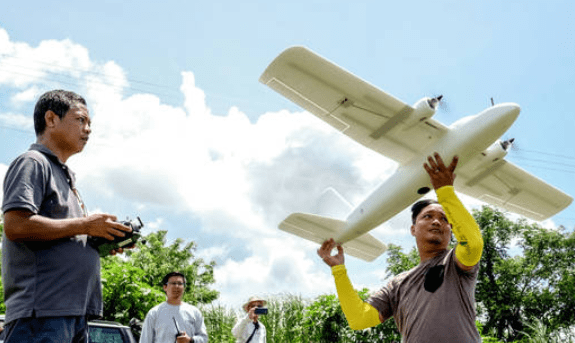Artificial intelligence is required to feed 10 billion people who are projected to live on the planet in 2050, highlighted the United Nations Conference on Food and Agriculture (FAO).
«The application of the best practices of artificial intelligence in the context of agriculture can help bridge the digital divide and, at the same time, tackle food insecurity,» he said in a statement issued Thursday.
«FAO, IBM and Microsoft are focusing on concrete and sustainable ways in which artificial intelligence can be used in line with the ethical principles endorsed by Pope Francis,» he added.
Artificial intelligence is the intelligence carried out by machines. In computer science, an ideal «smart» machine is a flexible agent that perceives its environment and takes actions that maximize its chances of success in some goal or task.
«The transformation of our food systems requires innovative solutions to ensure food security and nutrition for all,» said FAO Director-General QU Dongyu.
Artificial intelligence
In an event organized this Thursday together with the Pontifical Academy for Life, FAO, IBM and Microsoft reaffirmed their commitment to develop forms of artificial intelligence that are inclusive and promote sustainable ways to achieve food and nutrition security.
The purpose of the IA online act, food for all. Dialogue and Experiences is to reinforce and enhance the Rome Call for the Ethics of Artificial Intelligence endorsed by Pope Francis and jointly signed by FAO, IBM and Microsoft at a conference organized by the Academy in February.
World population
Discussions on Thursday also focused on concrete ways in which Artificial Intelligence can help achieve the goal of feeding a world population estimated to number 10 billion people by 2050, while safeguarding natural resources. and addressing challenges such as climate change and the repercussions of shocks such as coronavirus disease (Covid-19).
Examples of best practices in the use of AI and digital technology in agriculture that are available in the form of freely accessible digital public goods were also presented.
«The implementation of technologies clearly of Western origin in the production and processing of food has a great impact on the food cultures of the Earth’s populations. We must feed all people, but not necessarily all must eat the same,» said the Archbishop Vincenzo Paglia, president of the Pontifical Academy for Life.
“The protection of biological diversity (human, plant and animal) must be at the center of our attention and must guide the entire process, from the design phases (‘ethics by design’) to the way in which it is they propose and disseminate in different social and cultural contexts «, he added.
Technological advances
Artificial intelligence can play an important role in transforming food systems and help address food and nutrition insecurity.
In agricultural sectors, you can fulfill this role in various ways, for example by optimizing or even carrying out some human activities, such as planting and harvesting, thereby increasing productivity, improving working conditions – reducing the amount of time and effort – and using natural resources more efficiently, through better knowledge management and planning, among other things.
In particular, as e-agriculture technology rapidly advances, AI is beginning to be applied in three main agricultural areas: agricultural robotics, soil and crop monitoring, and predictive analytics.
In a context of climate change, population growth and the depletion of natural resources, the progress made in these areas can contribute greatly to the conservation of soils and water, which is increasingly important for achieving food security in the form of sustainable.
Challenges
In relation to these principles, and in the context of the use of AI in agriculture, the partners and co-signatories of the Rome Call recognize that it is necessary to protect the rights of farmers and the knowledge they possess, especially those of countries Developing. It is also necessary to bridge the digital divide: today, 6 billion people do not have a broadband connection, 4 billion do not have Internet, 2 billion do not have mobile phones and 400 million do not have a digital signal; likewise, there are great differences in access to resources between men and women and the young and old.
![]()

